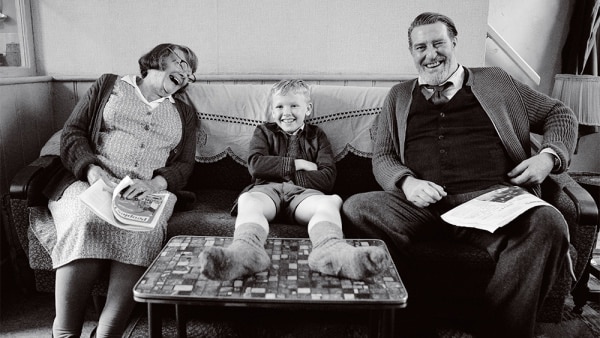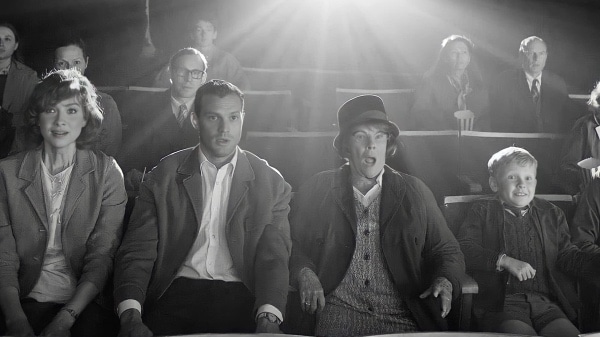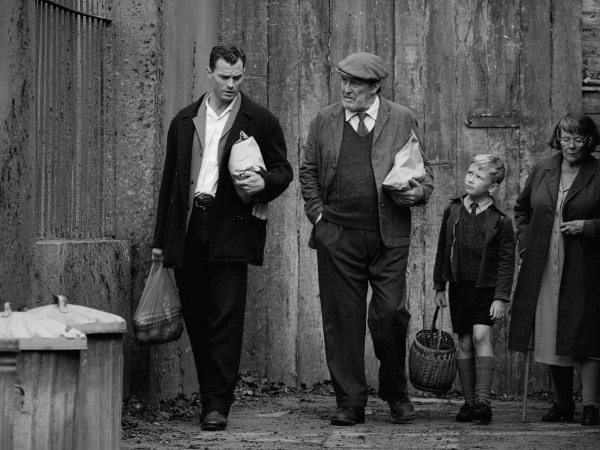Many years ago, I became a big fan of Kenneth Branagh when I saw his string of Shakespearean plays turned into movies starting with “Henry V.” In the convent where I lived, we were going through a phase of reading Shakespeare plays out loud together and I remember traipsing from Alexandria, Virginia across Washington, DC via the Metro to the arthouse theater where Branagh and Emma Thompson graced the screen with their verbal sparing match as Benedick and Beatrice in “Much Ado About Nothing.”
Since then, Kenneth Branagh has starred in many films, some of which he also penned and directed and has become a consummate filmmaker. Younger generations were introduced to him as Gilderoy Lockhart in “Harry Potter and the Chamber of Secrets” and most recently, he dabbled in Agatha Christie with “Murder on the Orient Express” and the soon-to-be-released, “Death on the Nile.”
Even so, how much do we audiences really know about an actor or director’s personal life and where their drive to create comes from? Not much. However, we now know a little bit more of what drives Branagh with the Oscar-nominated film, “Belfast.” This semi-autobiographical historical drama follows 9-year-old Buddy (Jude Hill), his parents (Jamie Dornan and Caitriona Balfe), older brother (Lewis McAskie), and grandparents (Ciarán Hinds and Judi Dench) as their lives change drastically when their quiet neighborhood in Belfast turns violent on August 15, 1969.
Buddy’s out playing with the neighborhood kids, carboard sword and trash can lid shield in hand, when it happens. Their tranquil street turns into a war zone when some anti-nationalist Protestants set fire to the Catholic homes in the neighborhood. The rubbish bin lid turns into a real shield as he and his Ma (Balfe) run for the safety of their home.
As the violence in Belfast unfolds, we see all that’s happening through Buddy’s eyes. He’s confused about what’s going on and why there’s a barricade at the end of their street. He gets into trouble as cousin, Moira (Lara McDonnell), pulls him into a scheme to steal candy from the local confectioner’s shop. She also pulls him into looting during ensuing riots, but Ma sets him straight. He even wonders if being Catholic wouldn’t be so bad (his family is Protestant) because he likes the idea of going to confession to have his wrongdoing expunged. His saving grace is his close relationship with grandad, Pop (Hinds), who imparts all the wisdom a young man needs to know.

Family life is tough. Pa (Dornan) isn’t home much. The family owes back taxes and Pa commutes to England for weeks at a time for his job. When he’s home, he does his best to spend time with his wife and boys. We also see how much film and TV mean to Buddy. He watches “Star Trek,” “The Man Who Shot Liberty Vance” and “High Noon.” There’s a wonderful scene when the whole family goes to the theater to see “Chitty Chitty Bang Bang,” a splash of color and wonder in their tenuous existence.

Branagh’s film is stunning, shot in black-and-white and gives honor to family and relationships. There’s no big save-the-world plot or crime to solve, but just an understated exploration of events and feelings that shaped Branagh’s childhood. The interactions and banter between Pop and Granny (Dench) are just the sweetness one would expect from a long, loving marriage. Ma and Pa’s relationship, though strained with worries about money and the escalating situation, is nevertheless strong and loving. Even Buddy has his own first crush on a Catholic girl, Catherine (Olive Tennant), and he works hard at school so he can sit next to her as their seating is arranged by achievement and she’s at the top of the class.

In a political atmosphere that pitted Catholic against Protestant in Northern Ireland, Pa does his best to impart to Buddy that prejudice should have no place in his heart. Where one comes from or what they believe doesn’t matter as we are all neighbors and children of a loving God, deserving of respect and human dignity. What a powerful message that was taught to a little boy years ago and still inspires us through his film stories to this day.



